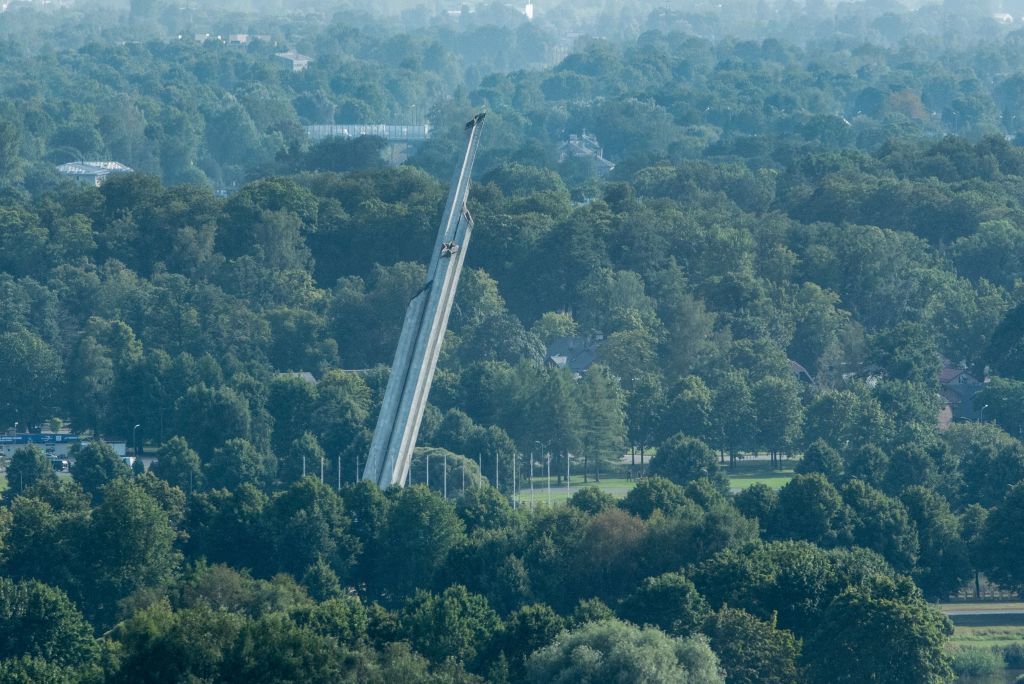Russia’s Internal Affairs Ministry has added former and current officials from Baltic countries and Poland to its wanted list for allegedly being responsible for the destruction or damage to monuments honoring the Red Army. This move follows previous additions of Western officials accused of dismantling Soviet soldier monuments, including Estonian Prime Minister Kaja Kallas. President Volodymyr Zelensky of Ukraine was also temporarily added to the list before being removed. The decommunization process in former Soviet and Warsaw Pact countries has been ongoing since the collapse of the Soviet Union, intensifying after Russia’s full-scale war against Ukraine. Ukraine outlawed Soviet and communist symbols in 2015, leading to the removal or alteration of many monuments, although the task has been prolonged due to the large number of Soviet-era statues and symbols.
In Estonia, the Internal Security Service detained 10 individuals in connection with a series of crimes committed in late 2023, including the vandalism of a car belonging to Estonian Interior Minister Lauri Laanemets. This action was seen as a response to a ‘hybrid operation’ conducted by Russian security services. The recent additions to Russia’s wanted list of officials from Baltic countries and Poland further highlight the tensions surrounding the decommunization process in the region. The removal or alteration of Soviet-era monuments and symbols has been met with opposition from some quarters, leading to accusations and counter-accusations among countries involved. The decommunization process serves as a reminder of the complex historical legacies and ongoing conflicts in the region.
The process of decommunization in former Soviet and Warsaw Pact countries has been marked by challenges and controversies, with various countries implementing different strategies to address their communist past. While some have opted for a more gradual approach, others have taken more aggressive measures such as outlawing Soviet symbols and monuments. The removal or alteration of these symbols has sparked debates about historical memory, national identity, and reconciliation with the past. In Ukraine, the decommunization process has been a crucial part of asserting its independence and national identity in the face of Russian aggression.
The intensification of the decommunization process in the region reflects the ongoing geopolitical tensions and historical disputes between Russia and its neighbors. The addition of officials from Baltic countries and Poland to Russia’s wanted list further complicates the relationship between these countries and highlights the continued importance of history in shaping contemporary politics. The removal or alteration of Soviet-era monuments and symbols serves as a symbolic battleground for competing narratives of the past, with implications for the present and future of the region. The decommunization process has become a divisive issue, reflecting the deep-rooted historical and political divisions in the region.
The actions taken by Russia and other countries in response to the decommunization process underscore the complexities of historical memory and the challenges of addressing past injustices. The removal or alteration of Soviet symbols and monuments is not just a symbolic gesture but a deeply political act that reflects competing narratives of history and identity. The conflict over the decommunization process highlights the ongoing struggles for independence, sovereignty, and national identity in the region, with implications for regional stability and security. The memory of the Communist past continues to shape the political landscape of the region, highlighting the importance of confronting historical legacies in order to build a more just and peaceful future.














